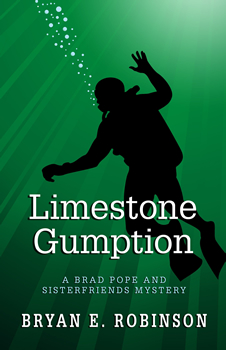

Writing Advice: Flip Your Perspective Instead of Your Lid to Broaden-And-Build Writing Success
“The lizard brain is not merely a concept. It’s real, and it’s living on the top of your spine, fighting for your survival. But, of course, survival and success are not the same thing.”—Seth Godin
Writer’s block. No-shows at book signings. Editor rejections. When the writing doldrums come—and they surely will—we tend to give them more credibility and treat them more seriously than the successes.
Writing stress, frustrations, and letdowns are a natural consequence of the literary trajectory. Sometimes they can create discouragement so large that it ghosts our self-confidence and cripples our motivation to persist. During a ThrillerFest panel, author Wendy Tyson once said, “Celebrate writing highs but don’t take them any more seriously than the lows, and don’t take the writing lows any more seriously than the highs.” Sage advice from a successful thriller writer. And the science is on her side.
Neuroscientists have found that the brain is hard-wired to focus on a career problem or threat for survival purposes. If you’re like most authors, you overestimate a writing threat and underestimate your ability to manage it. That’s because your brain zooms in on the threat, keeps you focused on the problem, and mires you in a mud of negativity, obscuring potential solutions—even sometimes making you want to give up. This is especially true when negativity lingers after a writing disappointment, stalking you on the way to your writing station, eclipsing your real talent and creativity.
Two strategies neuroscientists say you can take to sustain or reclaim your writing power:
One, cultivating a wide-angle lens leads you toward more creative possibilities and solutions than a zoom lens. A body of research shows that authors with a wider scope scale the career ladder faster and farther than those with a narrow scope. When you’re dealing with writing stress, a pessimistic hangover from a letdown eclipses your options. Optimism, on the other hand, unlocks a range of possibilities that leads to writing success. Simply put, a negative mindset keeps you targeted on the problem. A positive outlook opens your lens and enables you to see solutions and sustain your creative mojo.
 Two, you have the ability to flip your perspective instead of your lid when bad writing news comes knocking. Babe Ruth applied this strategy to become one of the greatest baseball players in history. He said, “Every strike brings me closer to the next home run.” So you can translate Ruth’s wisdom into your next thriller by reminding yourself that “Every roadblock brings you closer to your next bestseller.”
Two, you have the ability to flip your perspective instead of your lid when bad writing news comes knocking. Babe Ruth applied this strategy to become one of the greatest baseball players in history. He said, “Every strike brings me closer to the next home run.” So you can translate Ruth’s wisdom into your next thriller by reminding yourself that “Every roadblock brings you closer to your next bestseller.”
Next time you have a lingering bad taste in your mouth from a writing letdown, step back and bring up the bigger picture. Affirm your “tallcomings” (your talents and capabilities that offset your shortcomings). Remind yourself of past writing successes and why you’re writing in the first place. Known by scientists as the broaden-and-build effect, this strategy expands your world view so you can take more in and galvanize more ideas and actions to add to your literary toolbox.
A positive mindset is essential for writing success. When you receive bad news (every great writer has, and every great writer will), try not to take it personally. You can’t have an up without a down, a right without a left, or a high without a low. If you’re like most writers, you forget that writing highs and lows are a package deal—that success is built on writing failure.
When you were a toddler, you fell down a few times before you could walk and run on your own. So as you contemplate your writing woes, be willing to step back from the downside. Broaden your scope so your imagination can roam, and you can build an arsenal to knock your next thriller out of the park onto the bestsellers list.
- LAST GIRL MISSING with K.L. Murphy - July 25, 2024
- CHILD OF DUST with Yigal Zur - July 25, 2024
- THE RAVENWOOD CONSPIRACY with Michael Siverling - July 19, 2024

